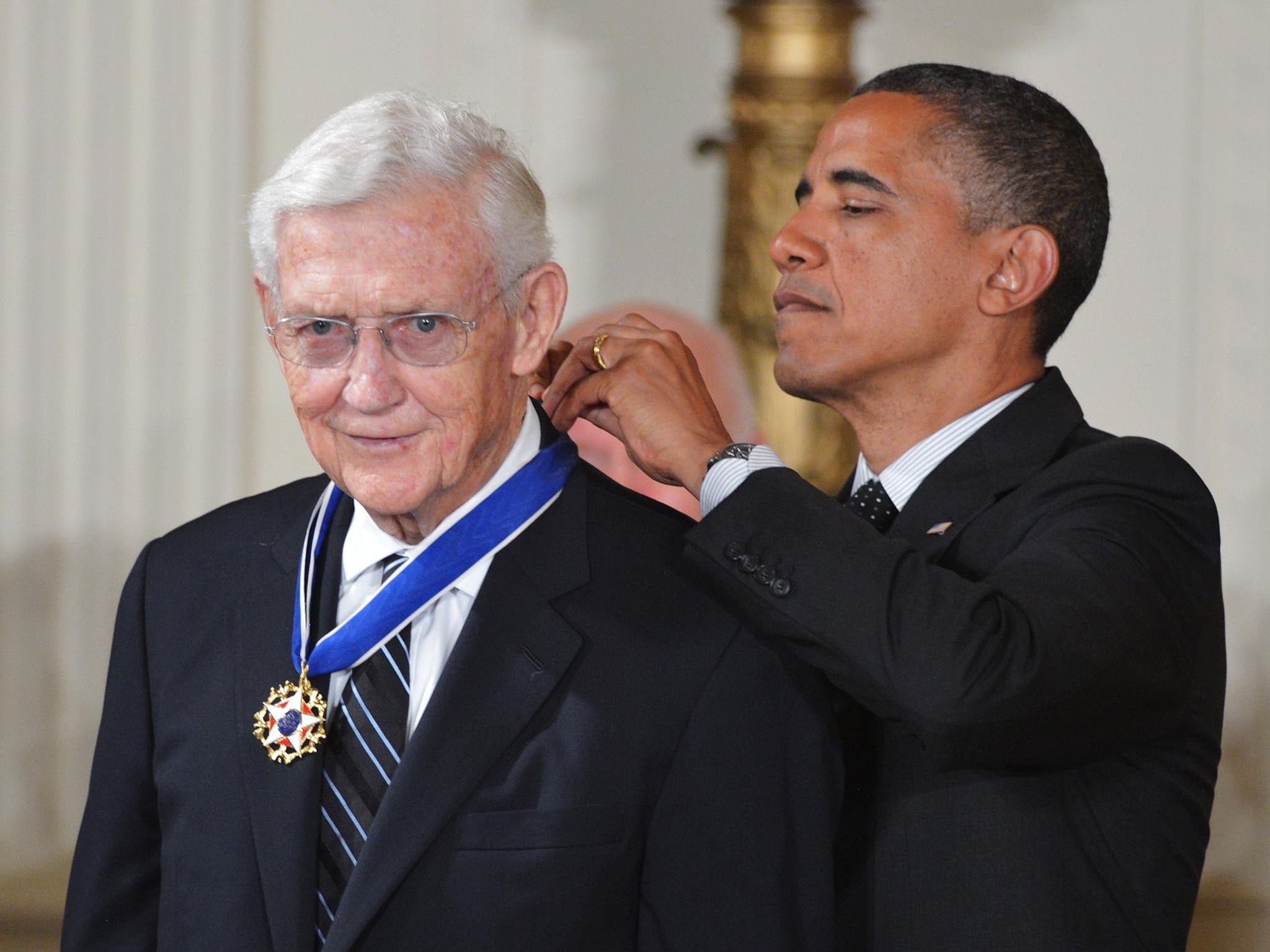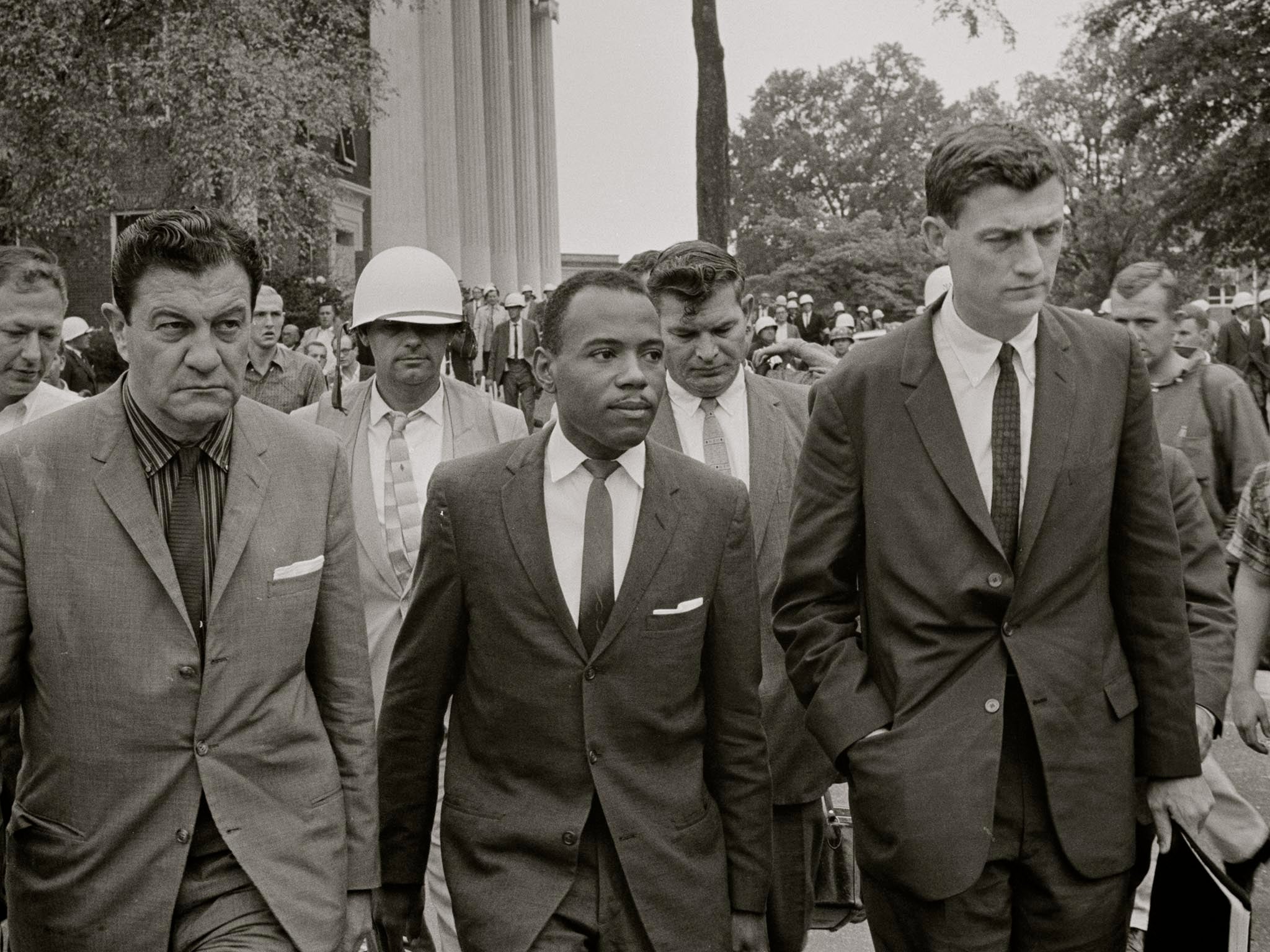John Doar: Civil rights lawyer at the centre of the struggle for voting rights in 1960s America
Doar challenged discriminatory policies in Southern states that curtailed minority access to the voting booth and state universities

Your support helps us to tell the story
From reproductive rights to climate change to Big Tech, The Independent is on the ground when the story is developing. Whether it's investigating the financials of Elon Musk's pro-Trump PAC or producing our latest documentary, 'The A Word', which shines a light on the American women fighting for reproductive rights, we know how important it is to parse out the facts from the messaging.
At such a critical moment in US history, we need reporters on the ground. Your donation allows us to keep sending journalists to speak to both sides of the story.
The Independent is trusted by Americans across the entire political spectrum. And unlike many other quality news outlets, we choose not to lock Americans out of our reporting and analysis with paywalls. We believe quality journalism should be available to everyone, paid for by those who can afford it.
Your support makes all the difference.As a top-ranking civil rights lawyer in the US Justice Department from 1960 until 1967 John Doar was at the centre of key battles to protect the rights of black voters and integrate universities in the Southern states.
Doar served in the final months of the administration of Dwight D Eisenhower and remained during the presidencies of John F Kennedy and Lyndon B Johnson. He rose to the position of assistant attorney general in charge of the department’s Civil Rights Division and challenged discriminatory policies in Southern states that curtailed minority access to the voting booth and state universities.
A Republican who worked for the federal government at the height of the civil rights movement, Doar played important roles in some of the pivotal moments of that cause. In 1962 he escorted James Meredith, the first black student to enrol in the University of Mississippi, on to the campus while state Governor Ross Barnett and angry crowds sought to keep the school segregated. He helped Meredith settle into his dormitory on a campus hit by violent riots that left two dead.

He was later the lead prosecutor in the federal trial arising from the deaths of three civil rights workers who were shot dead in 1964. A federal jury returned guilty verdicts against some defendants, but acquitted others. The killings inspired the 1988 film Mississippi Burning. “This was the first time that white persons were convicted for violent crimes against blacks in Mississippi. It was a historic verdict,” Doar said in 2009.
The US Attorney General Eric Holder called Doar a “giant in the history of the rights movement” as well as “a personal hero and an embodiment of what it means to be a public servant.” President Obama described him as “one of the bravest American lawyers of his or any era. Time and time again, John put his life on the line to make real our country’s promise of equal rights for all.”
Later in his career, Doar served as special counsel to the House of Representatives as it investigated the Watergate scandal, in which he recommended the impeachment of President Nixon (one member of his team was the future Hillary Clinton). In awarding him the Presidential Medal of Freedom in 2012, Obama credited Doar with laying the groundwork for the Civil Rights Act of 1964 and the Voting Rights Act of 1965. µ
John Michael Doar, lawyer: born Minneapolis, Minnesota 3 December 1921; twice married (four children); died New York 11 November 2014.
Join our commenting forum
Join thought-provoking conversations, follow other Independent readers and see their replies
Comments